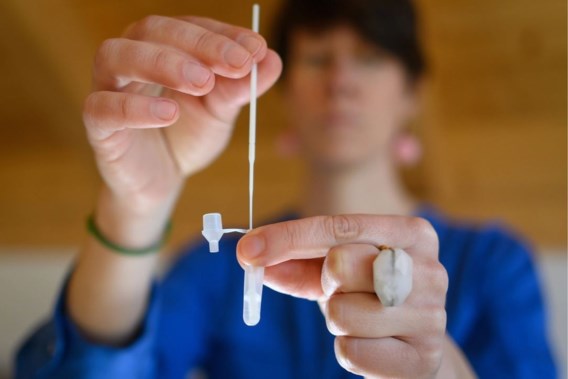The pilot project for coronavirus saliva testing of teaching staff will not be extended to the 2,700 schools in the Wallonia-Brussels Federation, which will instead opt for the self-testing strategy, Education Minister Caroline Désir said on Monday following a report in Le Soir.
“The logistical challenge is an insoluble headache for saliva testing, in the Wallonia-Brussels Federation as in Flanders, and the first analyses show very limited benefits,” the minister said through her spokesperson.
“Like the other entities, the Wallonia-Brussels Federation is working on the deployment of self-tests according to specific modalities which are currently being finalised,” said Désir (PS).
Related News
- Framework for test events should be set by Consultative Committee, says Vandenbroucke
- Number of people in ICU due to coronavirus continues to drop
Throughout March, more than 2,200 teachers from 20 schools in the Wallonia-Brussels Federation and 40 in Flanders took a saliva test at home each morning before sending their sample to the laboratories. The results were known in the evening.
The pilot project identified only two clusters: one in Wallonia and one in Brussels. Flanders abandoned it.
Extending it to the 2,700 primary and secondary schools in the FWB would have meant delivering equipment from a central station to the schools to test the volunteer teachers once or twice a week, plus taking the tests to hotspots, which would require cooperation from school principals already overburdened by the coronavirus pandemic.
There were also cost concerns: at €46.8 per test, each carried out once or twice a week on a maximum number of teachers, the cost could have exploded to €6.5 million per week for the south of Belgium.
Beyond the low cost-benefit ratio, critics also pointed out that the pilot project was imposed by the Corona commissioner's office at a time when self-tests were not yet in sight.
The Wallonia-Brussels Federation is now involved in this self-testing strategy, which is considered more effective and less costly.
The Brussels Times

